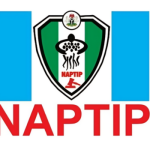The newly elected National Publicity Secretary of the Peoples Democratic Party, Ini Emembong, has explained why he chose to remain in the party instead of following Akwa Ibom State Governor Umo Eno to the All Progressives Congress, saying his decision was driven by personal conviction and ideological consistency.
In an interview, Emembong dismissed claims that his resignation from Governor Eno’s cabinet was motivated by political calculation or that recent events had vindicated him. According to him, staying in the PDP was a matter of principle.
He said it “has very little to do with reward,” adding that he prefers to “hold fast to the things I believe in,” like “a pole that is standing in one place and not the flag that is going according to the wind.”
Emembong said he remained in the PDP because he believes a strong opposition is essential in a multi-party democracy.
“There must also be an opposition capable of holding that government to account for the good of the people,” he stated. “In a multi-party system, we need to hold fast to that which we believe.”
Addressing concerns about the absence of the Independent National Electoral Commission at the convention, he insisted the process was valid, explaining that while Section 82(1) of the Electoral Act requires notice to INEC, subsection (2) makes the commission’s attendance discretionary.
He also commented on the lawsuit filed by former Jigawa State governor Sule Lamido, noting that the new national chairman, Kabiru Turaki (SAN), has adopted a reconciliatory approach. Emembong said party leaders, including Governor Seyi Makinde, are already engaging Lamido privately in efforts to resolve the dispute.
On fears that the absence of delegates from Rivers, Sokoto and Jigawa States undermined the legitimacy of the convention, Emembong insisted the required quorum was achieved. “The quorum is two-third. And for any motion to pass, you needed just a simple majority,” he said. He acknowledged, however, that political defections and internal tensions contributed to the divisions and stressed that the new leadership is committed to bringing aggrieved members back. “The chairman wants everyone back… he said he would go out looking for them.”
Reacting to questions on disciplinary powers, Emembong cited Article 33(2J) of the PDP constitution, which empowers the party to take disciplinary action against any member. But he emphasized that the national chairman has urged restraint, preferring reconciliation over punitive measures.
He rejected claims that the PDP is dysfunctional, arguing that perspectives differ depending on one’s position. According to him, the atmosphere at the Ibadan convention demonstrated renewed enthusiasm and a potential turning point for the party, with supporters expressing hope and urging leaders to rebuild.
Responding to concerns raised by the governors of Adamawa and Plateau States, Emembong said their objections were based on moral and managerial issues rather than legality. “They did not question the validity. They did not question the legality,” he said, adding that their concerns have been noted and will be addressed. He stressed that despite disagreements, none of the party’s stakeholders is seeking to undermine the PDP, and the chairman will continue engaging them to strengthen unity.











